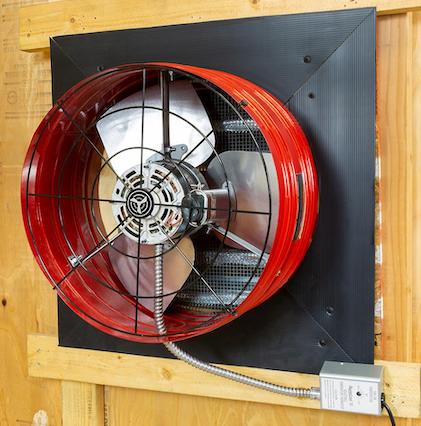This was observed on numerous days following the installation.
Attic exhaust fan operation.
Whole house fans by their nature are installed indoors in the attic floor or upstairs ceiling in a central location in the house.
Most fans cannot keep up.
Open several windows in your home.
This open ring configuration allows the fan motor to move air more efficiently and with fewer restrictions.
During the day any cooler air brought in by the fan will be heated up immediately by the surrounding structure.
The fan blade is encased in a patented series of rings not a cylinder like standard units.
Many are solar powered and require no other wiring so they don t cause any additional charges on your electricity bill at all.
The attic fan kept my house cooler by 8f compared to pre fan installation days.
With this you get to prevent moisture build up and thus protect and maintain your home.
Attic ventilation fans also tend to be quite energy efficient in terms of their own operation.
Gable fans fit into the gable vent and can be set to operate only within a preset temperature range.
In summer temperatures can reach up to 160 degrees fahrenheit or above.
The exhaust fan is made up of top notch plastic which makes it sturdy enough as well as simple to clean and keep up.
This exhaust fan comes with a safety monitor and will automatically shut off after operation.
That pool of heated air.
Check cheapest price.
After attic fan installation ac still off during day.
How to test an attic fan motor and thermostat.
A solar attic fan is a simple and efficient way of adding a ventilation system in your home.
A hot summer day super heats the attic s air raising temperatures up to 150 degrees fahrenheit making cooling your home a losing battle.
The gable fan uses a thermostat control to help prevent heat build up inside the attic.
More product details close.
Temp 84f at 5pm.
Temp 92 f at 5pm.
During workdays would leave air conditioner off when leaving in the morning.
Operating an attic fan is simple.
Opening windows on the lowest level helps to ventilate both the lower and upper levels but sometimes stairways.
A fan that won t run is often caused by a failed motor or a bad thermostat.
Even though an attic exhaust fan can incrementally lower the temperature of a very hot attic using a fan does not stop the source radiant heat.
Second a large fan working slowly is much quieter than a small fan working hard and the last thing you want at the center of your home is a noisy fan.

